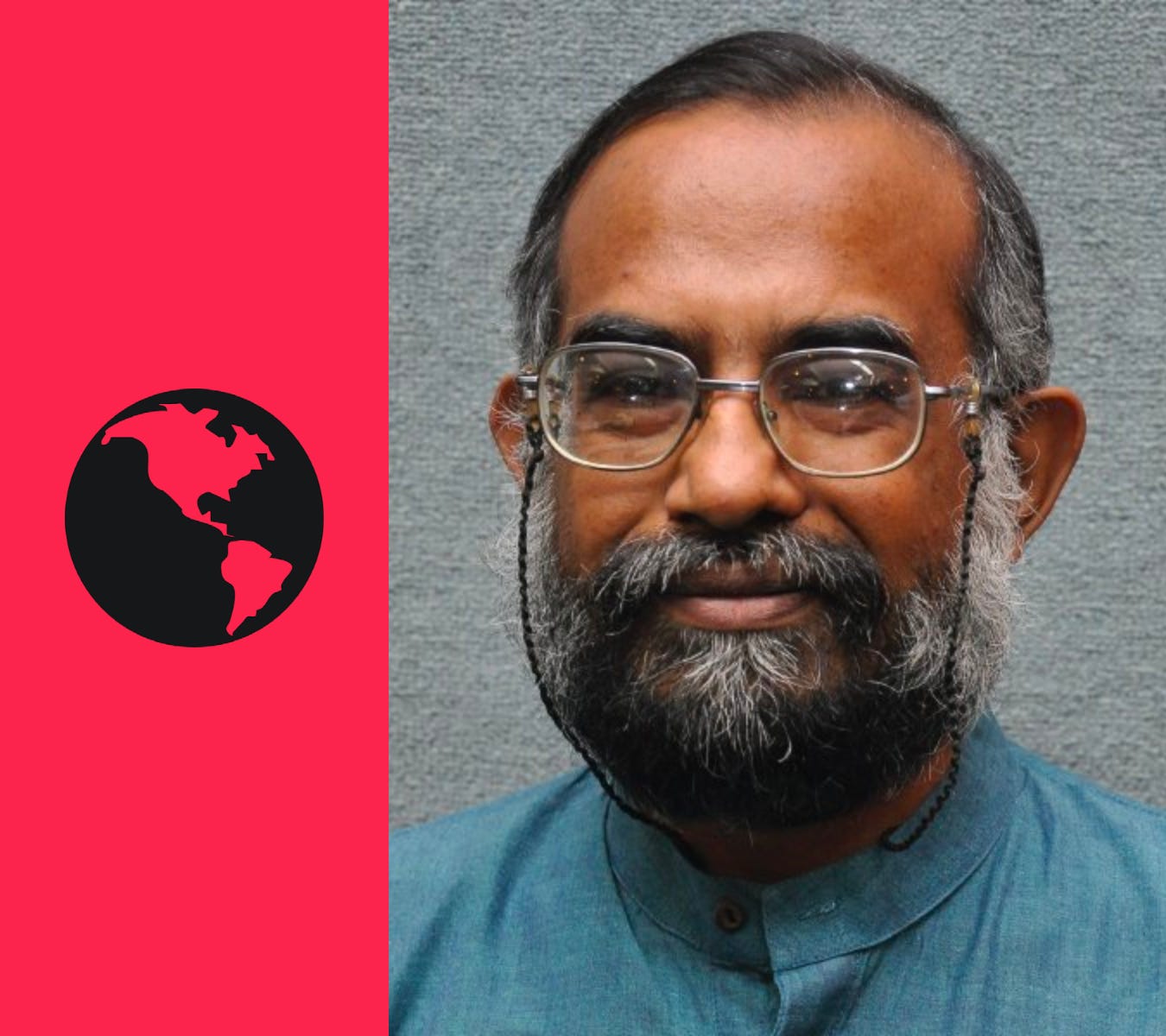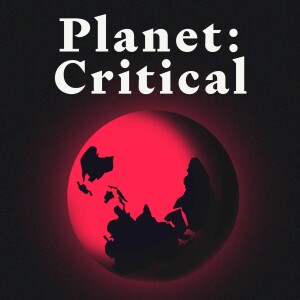
Exploitative elites are everywhere—so is resistance
The Global North vs Global South divide fails to capture the reality of power dynamics as national elites extract from their own citizens—often in the name of development. Capitalism funnels wealth to the top in every country, facilitated by a globalised system built on economic growth. But around the world, people are organising to resist these structures, to reclaim their land and their labour in order to benefit their communities. They are modelling alternative ways of being together; they are weaving together possibility.
Ashish Kothari is an environmentalist who has been working at the intersection of environment, biodiversity and development for decades. He’s the founder of Kalpavriksh, an Indian non profit organisation working on environmental and social issues at local, national and global levels. He also organises both the Confluence of Alternatives and the Global Tapestry of Alternatives, projects which bring together people all around India and the world to imagine and strategise alternative ways of being, politics, economies and systems.
We discuss the history of colonialism, the global obsession with economic growth, development as neo-colonialism, global and national inequality, patriarchy and the reality of elite exploitation across all nations. Ashish then goes on to introduce the people’s movements springing up around India, turning imagination into possibility as viable models are trialled which re-embed communities in their land and heal their relationship with the earth.
“What we need are systems across the country, across the globe, of this kind of political and economic localisation where people are able to take control over their ecosystems, their actual resources, their knowledge, their technologies, and also invite knowledge and technologies from outside if they think that what they have is not enough—but in on their own terms. Not being dominated from outside, so the political decision making and the economic decision making is at that local level. It is not with private corporations, nor is it even with the nation state.
“That is what we call radical ecological democracy, or, here in India, we call it eco-swaraj.”
© Rachel Donald
Get full access to Planet: Critical at www.planetcritical.com/subscribe
More Episodes
 2022-11-17
2022-11-17
 2022-10-06
2022-10-06
 2022-09-29
2022-09-29
 2022-09-15
2022-09-15
 2022-09-08
2022-09-08
 2022-08-25
2022-08-25
 2022-08-18
2022-08-18
 2022-08-11
2022-08-11
 2022-07-28
2022-07-28
 2022-07-14
2022-07-14
 2022-07-07
2022-07-07
Create your
podcast in
minutes
- Full-featured podcast site
- Unlimited storage and bandwidth
- Comprehensive podcast stats
- Distribute to Apple Podcasts, Spotify, and more
- Make money with your podcast
It is Free
- Privacy Policy
- Cookie Policy
- Terms of Use
- Consent Preferences
- Copyright © 2015-2024 Podbean.com






